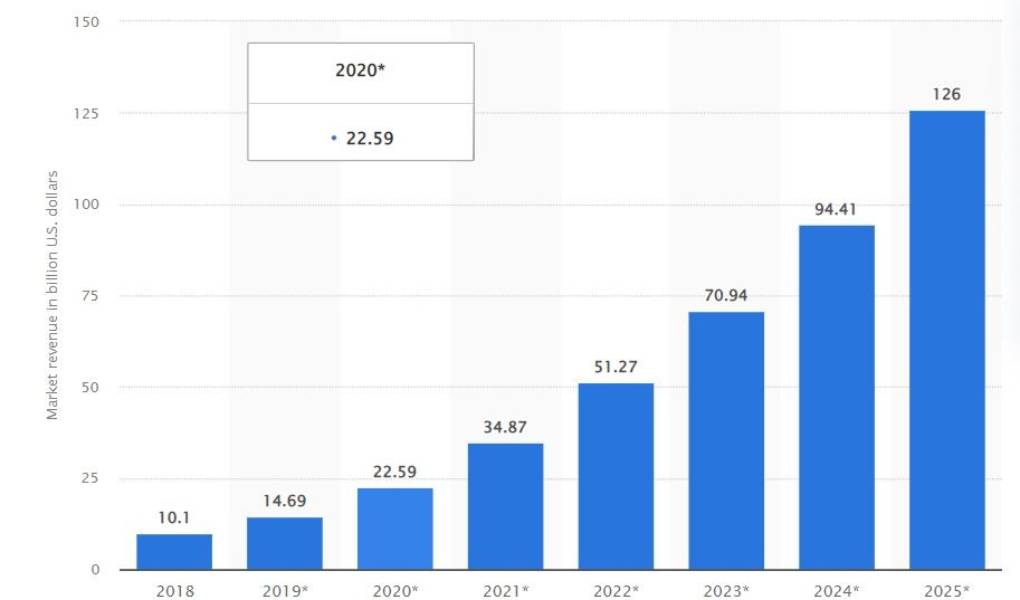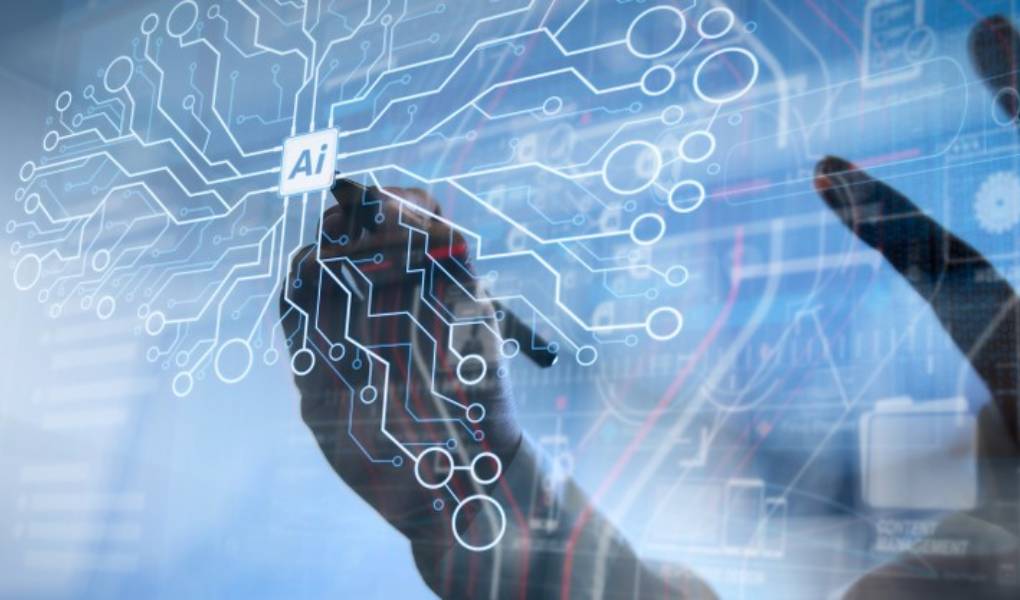AI has been doubted for its capabilities for a long time, but it has definitely stood the test of time. The revenue from the AI software market has grown from $10.1 bn in 2018 to $34.87 bn in 2021. As per Statista, with this steady increase, the AI software market is expected to generate a whopping revenue of $126 bn in 2025. This data speaks of the need for industry-wide acceptance of AI as an integral part of the development process and the expected increase in demand to hire AI engineers.

What is Artificial intelligence (AI)?
As the term suggests, Artificial intelligence is the artificial form of intelligence that can suffice for the need of human intelligence to perform a wide range of processes and tasks. It is the branch of computer science associated with creating intelligent virtual machines that effectively undertake tasks that demand human intelligence. AI is used to develop various systems, such as fraud detection, voice assistants, autonomous vehicles, recommendation systems, AI-powered chatbot services, etc.
How can AI improve software development?
Increase in development speed and accuracy
Including AI as a prominent part of the development process will significantly reduce the time spent on various tasks. AI helps in software testing by running automated tests and performing quality assurance analytics with high accuracy.
Additionally, AI can effectively reduce waste, streamline processes and eliminate the time spent on repetitive manual processes. This increases the development speed and accuracy, which makes businesses hire experienced AI engineers for complex services like enterprise AI chatbot development services.
Better decision making
AI can collect, analyze and leverage data to make well-informed and intelligent decisions free of human errors and biases. It can significantly improve the capacity to make strategically sound decisions by helping choose the right set of products and features to work on.
With the impact of AI in software development processes, developers can confidently deliver highly analytical and technical solutions.
Facilitating error management
AI today is helping developers to identify common errors and reduce downtime with proactive error management throughout the software development process. In addition, AI offers a great advantage for businesses as customers can now utilize services round the clock without fear of missing out.
For cloud-based services, manual error detection cannot be relied upon due to time constraints. A more effective approach can be used to leverage the power of machine learning in automatically detecting errors.
Facilitating development with real-time feedback
An AI programming tool comes with machine learning algorithms that can analyze how users interact with software and can work on offering a better user experience. It can assist developers by providing variable content and statistics about the software elements that need corrections or improvements.
With this dedicated AI feedback, developers can fix the errors on the go to assure that the users have a smoother experience with minimal downtime.
Placing developers in a better position
It won’t be wrong to say that AI is to place software developers in a better position as it can help them with almost everything, including code, fixing errors, and developing a fully functional application with ease. With the automation of these tasks by an AI assistant, developers can hone their skills to focus on more human-centric tasks.
Meanwhile, they can use AI to write tedious code in less time. With such a collaboration, developers can use their human potential to handle the complexities that require human knowledge and write better code with the help of AI.
Improving estimations
For ages, software engineers have been ill-famed for not stating the accurate project completion timelines and costs. However, they cannot be blamed for this because it is challenging to analyze projects, predict roadblocks, and offer accurate estimates on a human level. AI can solve this problem for developers by studying data from past projects and coming up with precise estimations to be presented to clients.
By leveraging this AI expertise, developers can predict the efforts, duration, and budget required for any given project. All this adds up to winning clients’ trust and improves their retention rate.
Reinventing development with AI engineers
Skills needed to become an AI engineer
To collaborate with AI, developers need to learn a few more things apart from being fluent in programming languages. The first thing to learn is algorithms and have strong expertise in Mathematics to inherit problem-solving capabilities and understand analytical challenges. The second thing is building a deep understanding of probability and statistics, which are the pillars of the foundation for AI.
To qualify as an AI engineer, one also needs to be multitasking, flexible, and proficient in various computing tools.
Career choices for an AI engineer
Advancing in a career is an ever-continuing process when one is open to learning new things. With the growing demand for AI in development, artificial intelligence engineers have a vast horizon to explore. Apart from working as AI engineers, they can also advance their careers by becoming machine learning engineers, business intelligence developers, research scientists, or data scientists.
However, these are some fields for which clients and businesses hire AI engineers, and we can expect many more fields to evolve in the near future.
Top AI development tools
To begin with, AI engineers should be capable of building AI systems. Like other programmers, they rely on supporting languages and tools that help them create AI systems. Some of the tools used by AI engineers include:
-
- Cloud platforms like Google Cloud or Azure
- Advanced learning platforms like H20.AI
- Google Assistant to work within AI systems
- Experience with programming languages such as Scala, Python, and Java
- Strong knowledge of machine learning libraries and analytical tools such as Torch, PyTorch, TensorFlow, etc.
- Profiling tools such as Perforce/Perl
APIs such as PhysX/OpenGL
Final thoughts
AI is here to stay and is fast becoming an integral part of everyday lives. Some key examples include Alexa, Siri, self-driving cars, email spam filters, Netflix’s recommendations, and many more. They have made our lives easier and influenced companies to hire AI/ML engineers to build next-gen applications.
To provide for it, developers need to embrace AI technology without fear. Practically, we are years behind the time when we could expect AI to work on its own and replace humans entirely. So, why not use this evolving technology to its best possible advantage.
